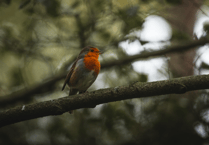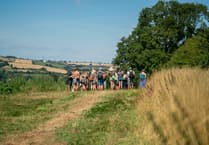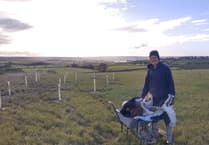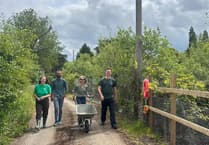As this is written, the country is enduring another heatwave, with fields parched and hosepipe bans looming. Yet only last year we had the wettest winter on record for England and Wales in over 250 years.
Record breaking and extreme weather has become increasingly commonplace in the UK as our climate has changed over the last few decades.
Trees planted this year are suffering and requiring watering; the heavy rains of December’s Storm Daragh are a faint memory. And as distant as flood episodes may seem, trees and woodland slow the flow of water, preventing catastrophic events further downstream - not to mention holding precious soil in place.
With all these issues in mind, the event which Bristol and Avon Rivers Trust (BART) organised at Fernhill Farm on Tuesday July 8, provided an amazing insight into solutions which can be implemented on our landscapes.
Busily attended by Chew Valley Plants Trees, land owners and farmers, Bristol Water, and other participants, we were demonstrated a fully functioning Wetland Ecological Treatment (WET) system by Jay Abrahams of Biologic Design, a system that could transform rainwater and the grey and black water of thousands of farm visitors, into pristine water whilst growing huge amounts of willow trees, creating abundant biomass for harvesting, and a incredibly rich ecosystem.
The same principles of holding water in the landscape and moving it gradually around using just off-contour ditches (swales) densely planted with trees and shrubs, can provide a landscape wide intervention that can massively slow water, hold moisture and grow vast amounts of trees.
Perhaps this is exactly what some of our hillsides need here in the Chew Valley - providing climate resilience, slowing water and growing lots of trees! Let’s hope in the future we can report back on these designs being implemented locally.
Chew Valley Plants Trees





Comments
This article has no comments yet. Be the first to leave a comment.